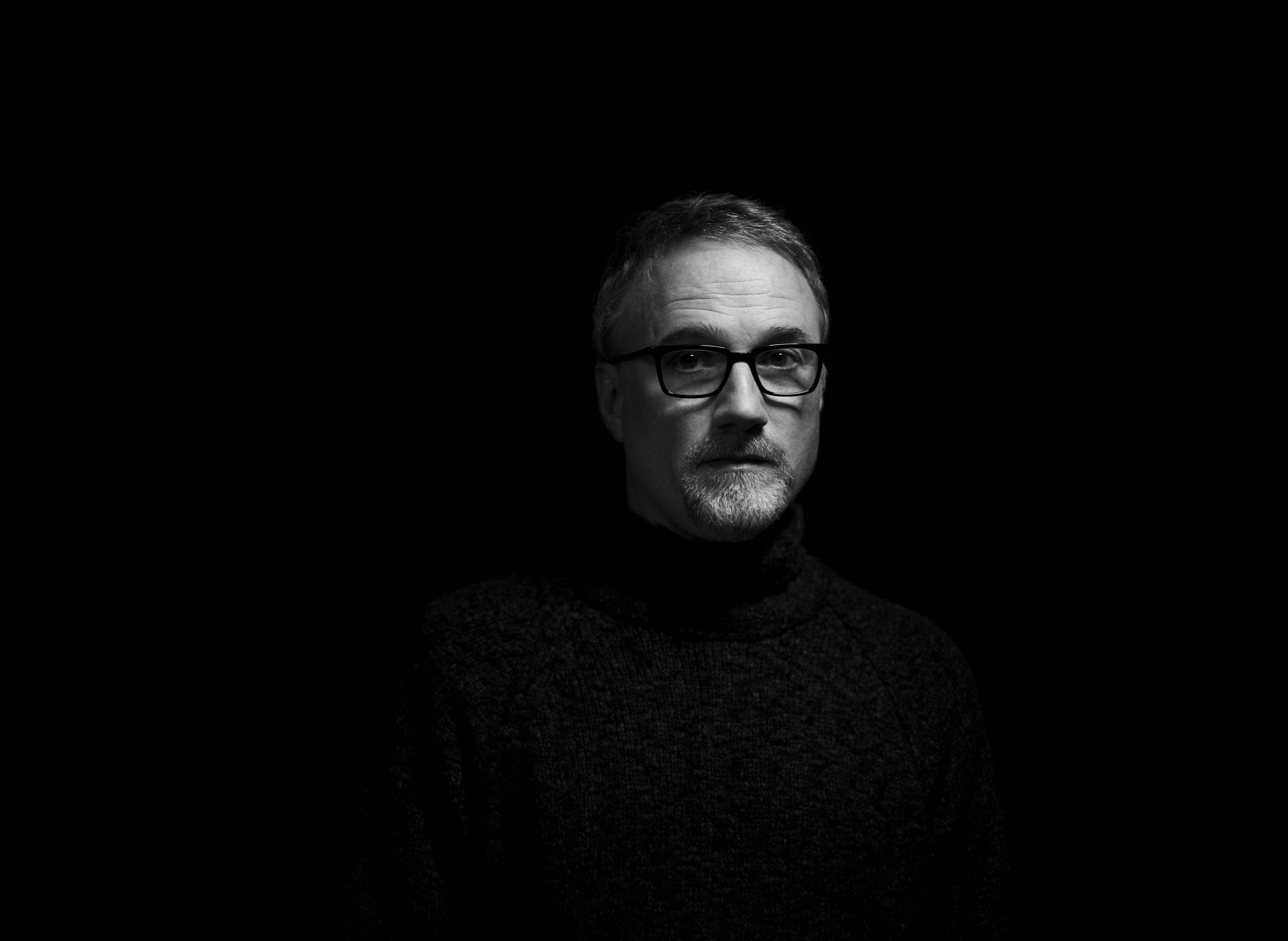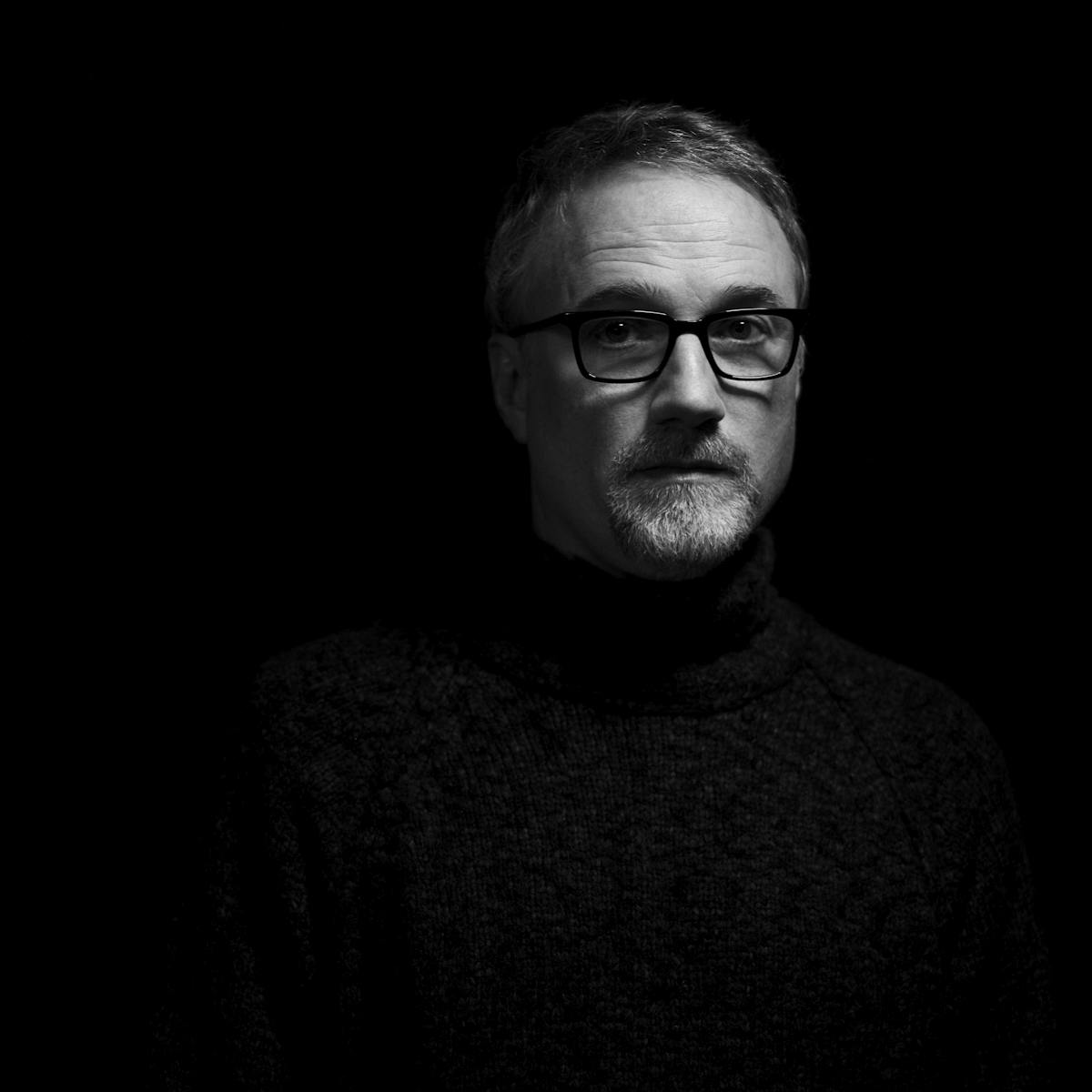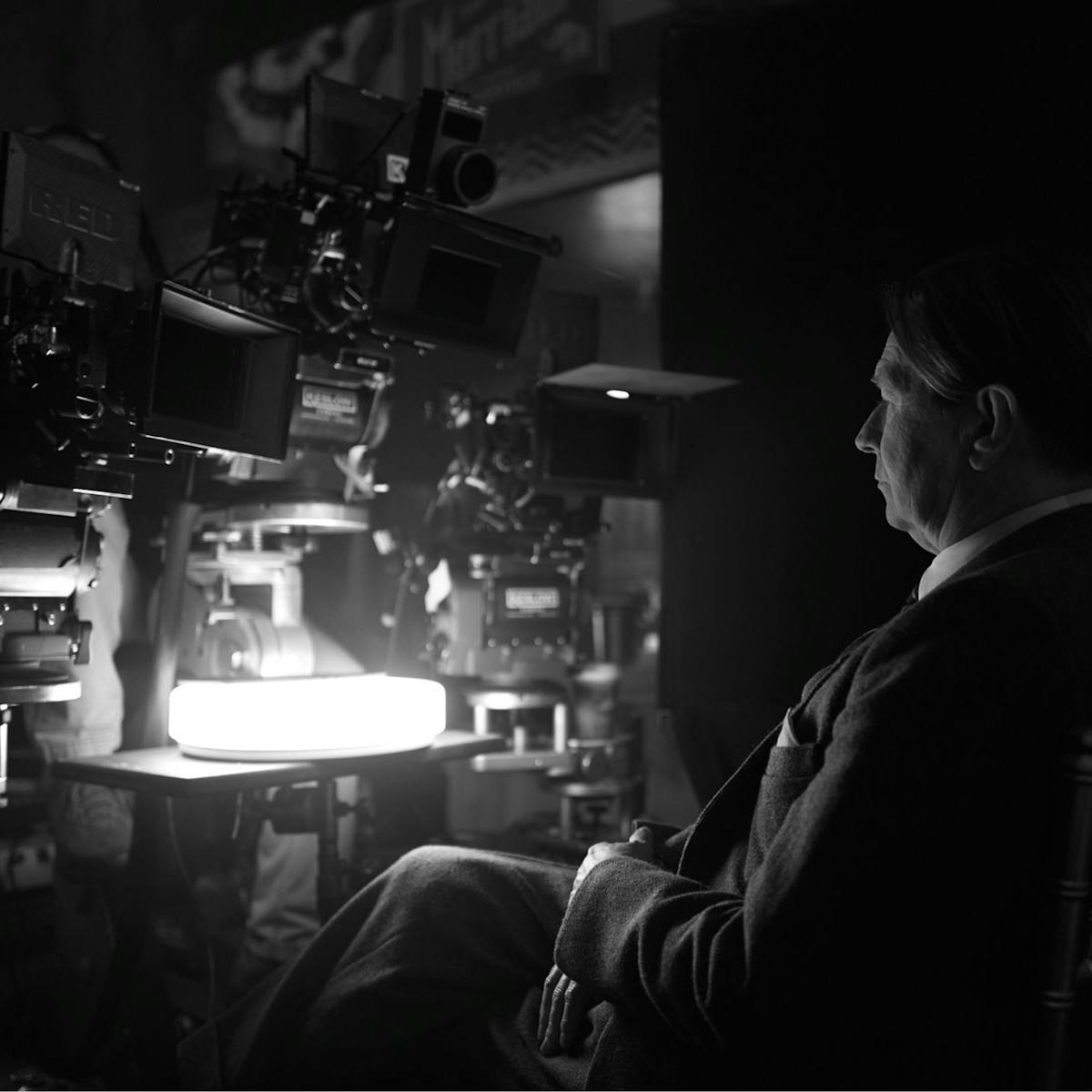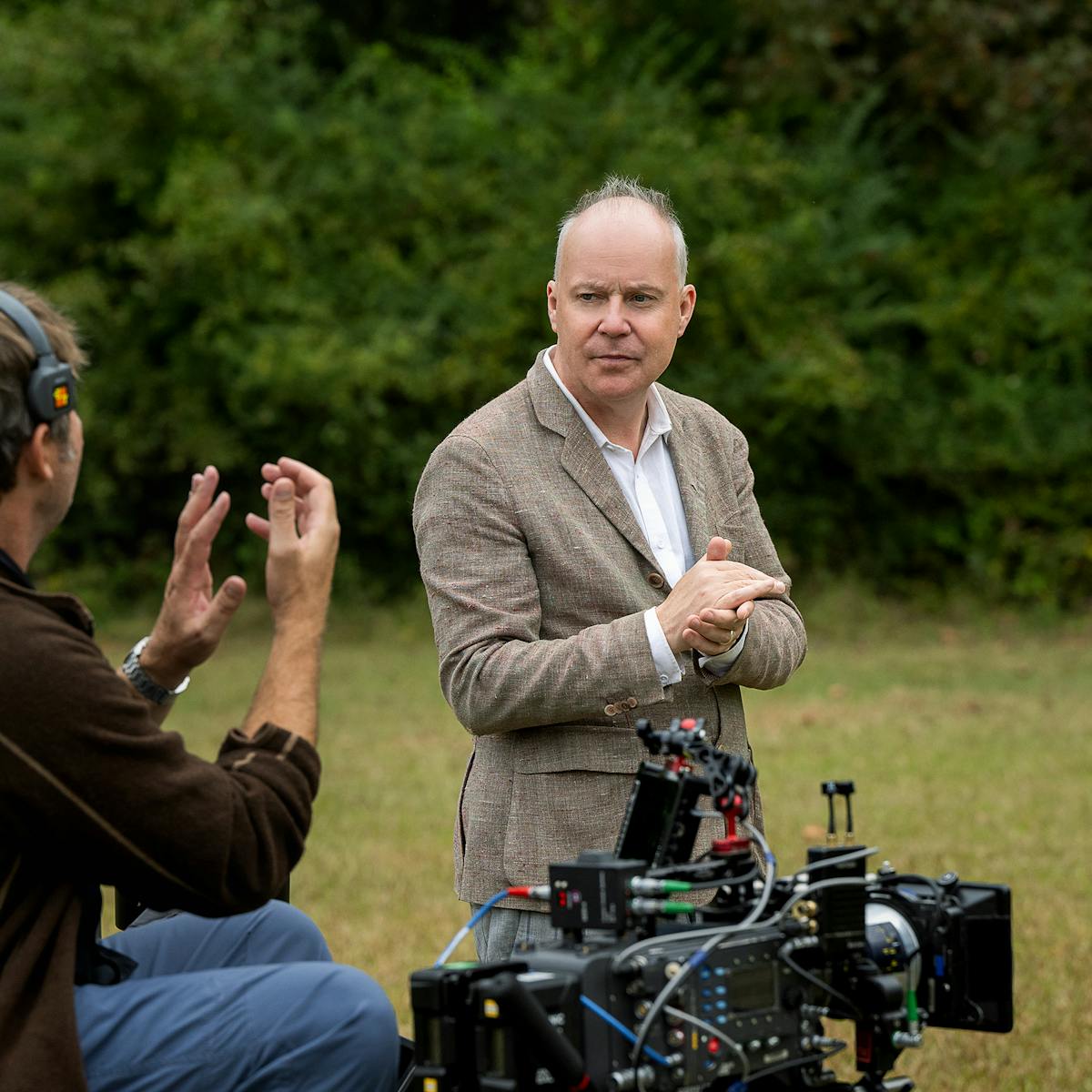The Killer is about an exacting professional whose meticulous methods and wry worldview are disrupted by unruly reality. This may be a clue as to why David Fincher wanted to make it. The Fight Club filmmaker is well-known for his tenacious approach to directing — always pushing for more. And in Michael Fassbender he has a leading man who is equally driven.
The Oscar-nominated star of 12 Years a Slave and Steve Jobs left screens for a few years to take up professional racing behind the wheel of a Porsche in the European Le Mans Series. This blend of danger and precision seems apt for playing the title character in The Killer, an unnamed assassin who aims to execute things — and people — perfectly.
We’ll get to how, or if, one can define “perfection” in cinema, but to an on set observer, it might seem Fincher will settle for nothing less. While he would contest this, he knows his definitions can differ from others’. “My idea of professionalism is you work 24-7 to make good on your promises,” he says, before continuing with a self-aware smile. “Not a lot of people feel that way. Some people are like: ‘You do the best you can in 40 hours a week and let the chips fall where they may.’”
Setting your own standards is a subject that recurs when talking with Fassbender on the New Orleans leg of the shoot in February 2022. In his trailer, between setups for his character’s pulsating, punishing fight with The Brute (Sala Baker), he remembers how, back at drama school, students would be consumed with fear or uncertainty upon hearing a critical verdict from teachers after a performance. He decided then: “I need to be my own judge.”
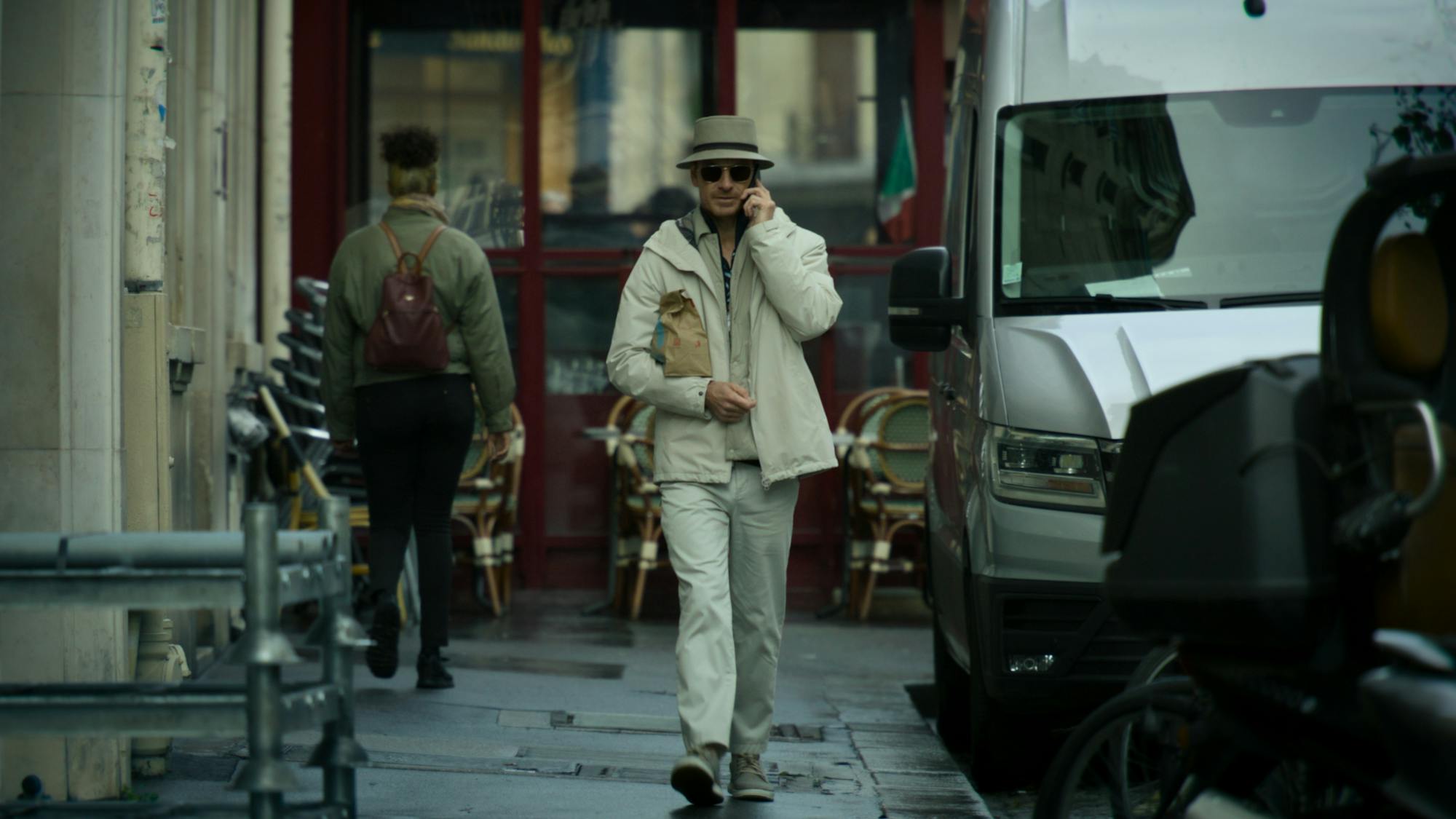
The Killer (Michael Fassbender) in The Killer
An inner compass is key to The Killer, an unnamed assassin whose thoughts we hear as he hunts those he feels threaten him. The film opens in Paris, as the title character waits in an under-construction WeWork space for his target to appear across a quiet city square. We follow his meticulous, mesmeric routine of sleeping and preparing while he expounds, in voice-over, his view of the world, and a variation on the mantra he will set forth throughout the movie: “Stick to your plan. Anticipate, don’t improvise. Trust no one. Never yield an advantage. Fight only the battle you’re paid to fight . . .”
The sequence sets the template for the rest of the film, exploring the gulf between the narrative people tell themselves and how they actually behave. Exploring this difference was part of what drew Fincher to the material when he first read the graphic novel — written by Alexis Nolent under the pen name Matz — in the aughts, when it was published in English after having run as a comic in France since 1998. “I love the idea of the code among assassins,” says Fincher. “But from a storytelling standpoint, what made this rise to the level of we should do this next was how it dealt so specifically with subjectivity. You are inside this guy’s head.”
It was a notion he had discussed for a long time with Andrew Kevin Walker, screenwriter of Se7en (1995), the serial killer thriller that announced the director to the world as a filmmaking force. Walker subsequently provided uncredited rewrites on Fincher-directed pictures The Game (1997) and Fight Club (1999), and the pair remained friends — talking often about ideas they would like to explore in films. Among them was the notion of a voice-over that contrasted with behavior, of a character that is essentially lying to himself. “If you’re tapped into their thoughts,” says Fincher, “How do they reconcile what they do with what they believe?”
Conscience and how we justify ourselves are themes in Fincher’s work, from Se7en to The Social Network (2010). Meanwhile, he has also shown a consistent interest in process: simply, in how things get done. This is present in Zodiac (2007), as an amateur sleuth and professional detectives sift through the evidence of an elusive serial killer, and The Girl with the Dragon Tattoo (2011), where unlikely heroes solve a decades-old mystery. The Killer shares a desire to demystify, as it takes the usually glamorous figure of a professional assassin and plants him in a prosaic reality. As Fincher puts it, he’s “James Bond by way of Home Depot.”
Although the source material was inspired by Le Samouraï, the elegant 60s assassination thriller starring Alain Delon in a fedora and trench coat, Fassbender’s character shops online or in convenience stores, and dresses like a tourist. He might be the least fashionable fictional assassin in history — bucket hat, tracksuits, sneakers. The rationale for his look is that the character buys convenience clothes in airports, all the better to blend in and remain anonymous.
Fincher had Fassbender in his sights for the role, having seen him in contrasting roles in 2009: Andrea Arnold’s Fish Tank and Quentin Tarantino’s Inglourious Basterds. “[He gives] two wildly compelling performances where you can’t connect the person . . .” The star hadn’t acted since appearing in 2019’s X-Men: Dark Phoenix, choosing instead to spend time with his family and pursue his passion for racing. Witnessing the filming of The Killer, you see how much physical precision and patience are required to play the character, with the film told entirely from his point of view. And Fincher is nothing if not specific about what he requires in each scene and each take. Fassbender thinks earlier in his career he might not have embraced the method. “Maybe when I was younger I would have been frustrated and not had the ability to just calmly step back, start again, and keep doing it,” he says.
Fincher tires of talking about the number of takes he does, as if it were his shtick. When you hear him or longtime editor Kirk Baxter explain, the numbers seem reasonable — desirable even — for logical and emotional continuity, as well as visual coherence. But with Fincher making a film about a sardonic, process-driven meticulous professional who sees the value of repetition, repetition, repetition, it’s not hard to draw an inference.
“You can draw parallels,” admits Baxter. “Here’s the story of an exacting assassin done by an exacting man.” He’s clear that Fincher doesn’t have all the characteristics of the murderous lead, “but he definitely has the diligence.” Director of photography Erik Messerschmidt, who won the Best Cinematography Oscar for his work on Fincher’s 2020 drama Mank, agrees that the director is precise and relentless in what he’s aiming at: “I wouldn’t ever call it perfection because I don’t think that’s what he’s seeking, but he knows what he’s looking for.”
